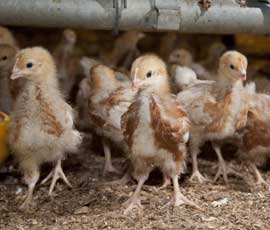Lion Code approval reinstated for Avatec

Pullet rearers now have a wider choice in preventing coccidiosis with the reinstatement of the feed additive Avatec 150G under the Lion Code of Practice.
The derogation on the use of the coccidiostat lasalocid – the active material in Avatec – was made by the British Egg Industry Council following concerns from pullet rearers over the range of alternative products available and the need to ensure that bird welfare is maintained.
The coccidiostat, which is the only divalent ionophore on the market, is now authorised under the Lion Code to be used from one day to 10 weeks of age.
Use of Avatec is subject to the BEIC guidelines on the management of feed on pullet rearing farms, which provide for the strict separation of feed containing coccidiostats to prevent any residues being detected in eggs.
The derogation comes seven years after lasalocid was removed from the Lion Code and will be reviewed later this year, according to the BEIC.
“The additive has proved highly effective in many species of poultry, with broad spectrum of activity and no depression of feed or water intake,” says Tony Grainger, poultry manager of Pfizer in the UK and Ireland. “It kills at the first stage of development to achieve potential full protection.”
Avatec 150G should be thoroughly mixed into feed at an inclusion rate of 500-830g/tonne and should be fed continuously from one day to 10 weeks of age.
| Coccidiosis |
|---|
Coccidiosis, caused by various host-specific species of the protozoan parasite Eimeria, is commonly found in many layer replacement flocks, as well as commercial broilers and turkeys. The infective oocysts survive in the moist warm conditions of poultry house litter, and are easily spread. Infections can cause both clinical disease, characterised by mortality, morbidity and diarrhoea or bloody faeces, and sub-clinical disease, causing reductions in weight gain and feed conversion efficiency. |
